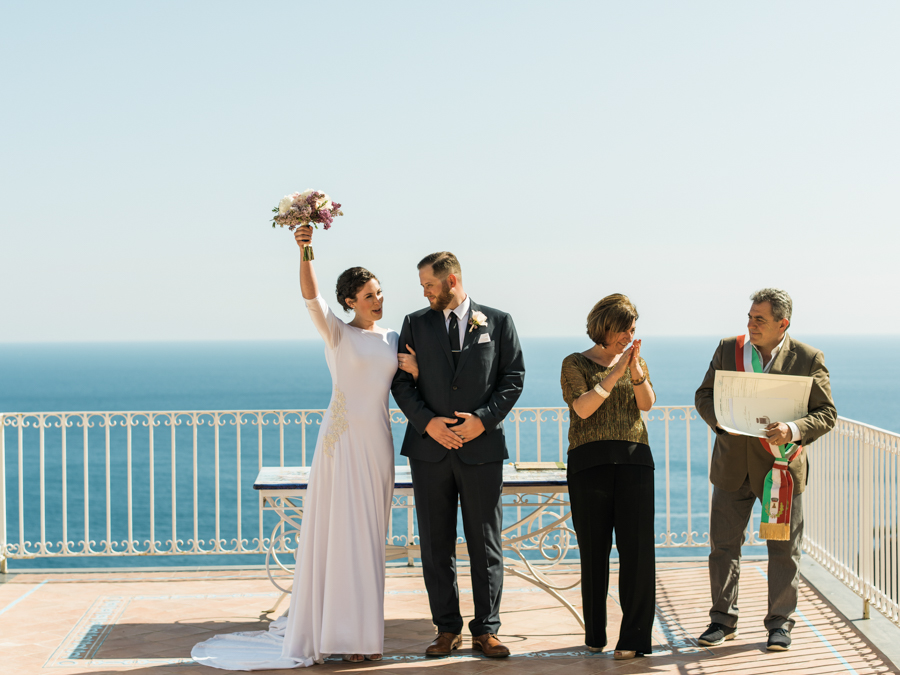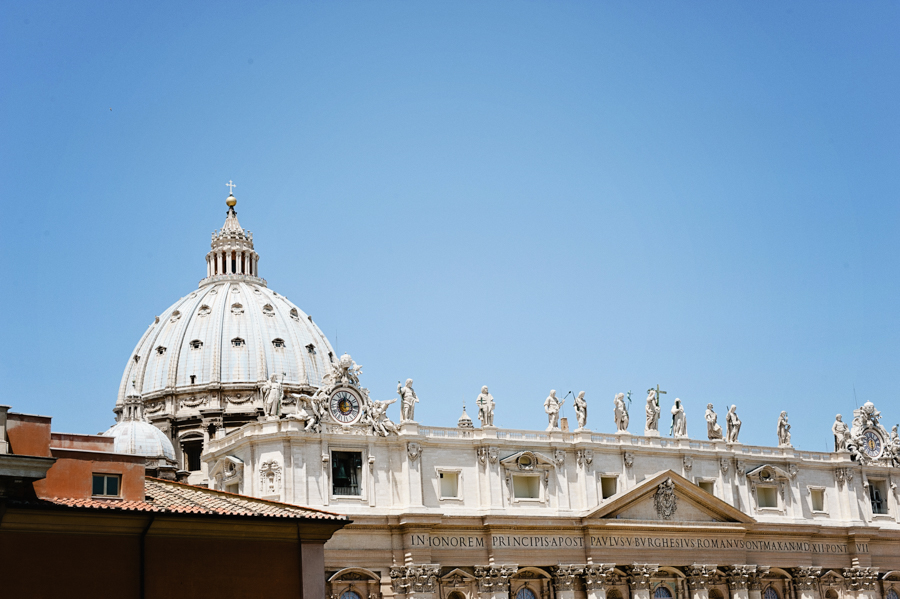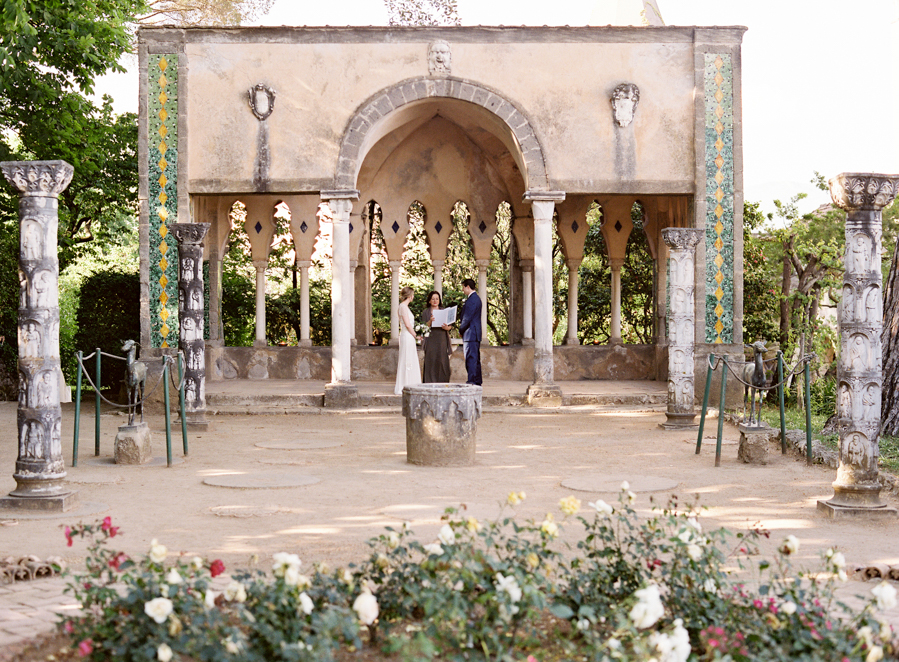In this post, I’ll introduce different types of ceremonies and rituals to choose for your elopement wedding along with some eloping tips!
There are basically three types of ceremonies: Symbolic, Civil, and Religious.
Even though the wedding industry has given us so many images of what a traditional ceremony should be like, an elopement wedding ceremony is entirely different.
You and your partner can do whatever you like on your day and decide on the type of ceremony YOU desire.
It’s your special day, and everything is up to you. That is the beauty of eloping.
1. A Symbolic Ceremony (for an Elopement Wedding)
A Symbolic ceremony is the simplest way to marry especially for an elopement.
You choose a place. It can be anywhere. A park (Villa Borghese elopement link), a hill cliff (link), or a beach (Positano) …wherever.
It can be public or private.
Some places require a photo permit and others don’t.
For instance, you can rent a romantic apartment or Villa through a panoramic terrace and exchange your vows. Or if you prefer, reserve an exotic hotel or resort. Most hotels, if you are a guest, will give you permission to take photos there.
Since a symbolic ceremony is not legally recognized, you can choose to use a celebrant to officiate your wedding or simply exchange vows.
I have seen many fun rituals, such as sand ceremony, unity candle ceremony or hand-tying ceremony.
If you choose to get married in a foreign country, a symbolic ceremony may be the best option since you would otherwise need a residency to get a marriage license. Many couples choose a civil ceremony then throw a reception when they return back home.
I would say about 70% of couples I’ve helped elope abroad have decided on a symbolic ceremony. It is the easiest and most straightforward way to get married.
If you’re on a budget and want the simplest way to elope, then I suggest to have a civil wedding back home and then exchange your vows wherever you like.
If you’re going to splurge on something, have a great photographer. Ideally, who knows the area and who you like as a person as they will be with you all day.

2. Civil Ceremony
The process of a legal or civil ceremony for an elopement wedding depends on the laws of the place you want to marry. Some countries, such as France, require that you live there for at least 40 days and have residency. In most cases, you will have to have your ceremony at the local town hall.
Italy and Greece on the other hand, are fairly easy to have a civil wedding.
If you choose to have a civil ceremony abroad, I recommend hiring a local coordinator or wedding planner who knows the language and laws. That way, she and can help you with the paperwork.
When I help couples design their dream elopement, I create a dream team so that officiant is a good match. I have excellent referrals in various countries, tailored to your schedule and budget.
Creating your dream team is key for an elopement! You can watch this video on why and how to create your dream team.

3. Religious Ceremony
If you wish to have a religious ceremony, abroad, you should first speak to the local clergy about any necessary requirements. He might even suggest a church of your own denomination in the area.
The paperwork will depend on the venue and its popularity. If you wish to get married in Saint Peter’s Basilica, you should prepare a good year in advance.
Yes, you really can get married in Saint Peters! I’ve photographed at least 10 weddings in Saint Peters basilica.
Again, I recommend hiring a local wedding planner to help you with the paperwork for a religious ceremony.
The bureaucracy in a foreign country can be a headache.

For more inspiration, you can watch this video on Ceremonies & Rituals that includes an interview with an Officiant as she shares her insider tips.
